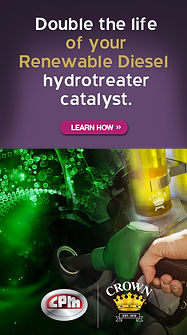- Nacero Inc.
Nacero to use Topsoe technology for methanol-to-SAF project in Texas

Nacero Inc. announced March 28 that it will transition its current preconstruction, multibillion-dollar facility in Texas, designed to produce low-carbon gasoline, to the production of sustainable aviation fuel (SAF) and lower-carbon aviation fuel (LCAF).
When fully completed, Nacero said its facility in Texas will be the largest commercial-scale facility in the U.S. for producing SAF and LCAF utilizing Topsoe’s MTJet™ technology.
Nacero will produce SAF and LCAF from renewable natural gas (RNG) sourced from dairy farms and landfills, and from mitigated flared gas sourced in the Permian Basin.
The SAF and LCAF products will contain no sulfur, while produced utilizing 100 percent, low-cost renewable power, and utilizing integrated carbon capture within the process.
As a result, Nacero and Topsoe offer America’s aviation industry a lower-carbon solution for everyday jet fuel at an affordable price and with up to a 100 percent reduction in its lifecycle carbon footprint.
“Topsoe fully supports Nacero’s decision to shift its focus to SAF and LCAF production given the challenge of meeting 2030 and 2050 consumption goals of renewable jet fuel,” said Henrik Rasmussen, Topsoe’s managing director for the Americas. “We have been working very closely with Nacero’s experienced project team to implement Topsoe’s natural gas to gasoline process (TIGAS™) and we are very excited about the opportunity to continue this successful collaboration while building a scalable solution to meet the world’s growing demand for SAF and LCAF.”
Nacero will leverage already complete project-development work, site permitting, and extensive engineering and construction planning for the earlier proposed TIGAS™ gasoline project.
This work will be updated by Topsoe and Nacero with minimal design modifications required to enable utilization of the very similar MTJet™ process.
The already completed engineering and construction-planning work remains unchanged and is completely compatible as designed with Topsoe’s MTJet™ process.
This includes Topsoe’s proprietary processes, catalysts and equipment designs for its SynCOR Methanol™ technology as well as integrated carbon-capture technology provided by Giammarco Vetrocoke.
Leveraging this previous work enables and achieves significant schedule advantages for the joint-development effort to achieve commercialization of SAF production.
Topsoe has more than 50 years of commercial experience and internal research and development with methanol synthesis and methane-rich gas-to-gasoline processes, which support a methanol-to-jet solution.
With Nacero’s participation, Topsoe is currently working with ASTM to qualify the methanol-to-jet pathway.
Topsoe will provide the required samples produced from its demonstration unit to validate fuel quality, safety and compatibility with existing jet engines.
Topsoe will provide Nacero with engineering and design services to update its process-design package (PDP) for MTJet™ technology and will supply catalyst and proprietary hardware for Nacero’s Texas facility.
Nacero and Topsoe together will focus on long-term, large-scale impacts to achieve the established U.S. carbon-reduction goals for 2030 and 2050, including expanding the supply of Topsoe technology and catalysts for future Nacero SAF-production facilities in the U.S.
Topsoe’s MTJet™ technology, incorporated with its SynCOR Methanol™ technology, achieves exceptional economies of scale with each future production phase.
By using six parallel SynCOR Methanol™ and MTJet™ process units, Nacero’s Texas facility, when fully developed, will produce more than 30,000 metric tons per day of methanol, which will be processed to SAF and LCAF for the aviation industry.
“At Nacero, we recognize the need to address climate change and decarbonize all sectors, yet we believe that we can make the greatest impact by helping to reduce carbon produced from air travel,” said Bruce Selkirk, CEO and chairman of Nacero. “The airline industry and U.S. government agencies have pledged significant carbon-reduction targets to be achieved by 2030 and 2050, which presently appear to be challenging to meet with current technologies and limited feedstocks. By transitioning our facilities to SAF and LCAF, we believe we can make a significant contribution to meeting these goals while at the same time offering a product to the aviation industry that is cost-competitive to traditional jet fuel.”




















-adjusted-to-spec.jpg)



